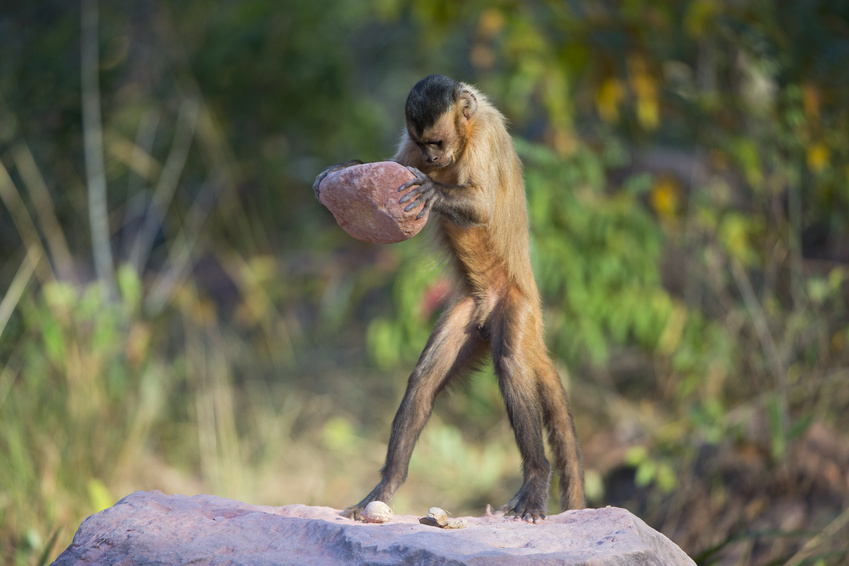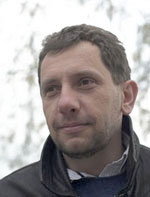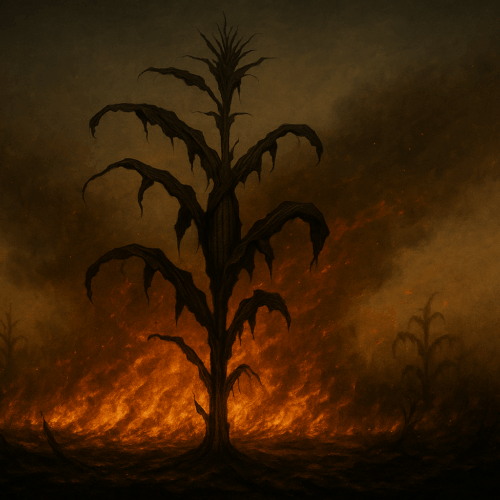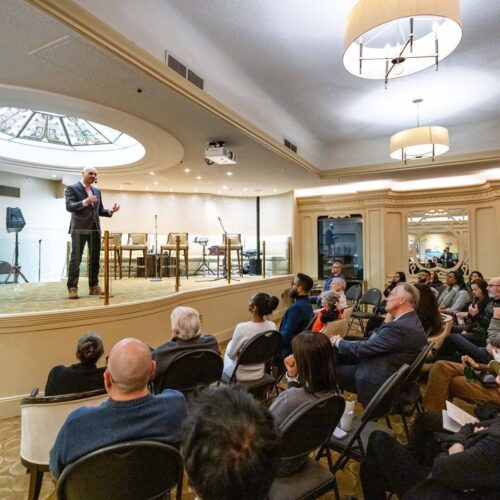Where does intelligence come from?
Danko Nikolić / Op Ed
Posted on: May 16, 2016 / Last Modified: April 5, 2024

It is amazing how intelligent we can be. We can construct shelter, find new ways of hunting, and create boats and machines. Our unique intelligence has been responsible for the emergence of civilization.
But how does a set of living cells become intelligent? How can flesh and blood turn into something that can create bicycles and airplanes or write novels?
This is the question of the origin of intelligence.
This problem has puzzled many theorists and scientists, and it is particularly important if we want to build intelligent machines. They still lag well behind us. Although computers calculate millions of times faster than we do, it is we who understand the big picture in which these calculations fit. Even animals are much more intelligent than machines. A mouse can find its way in a hostile forest and survive. This cannot be said for our computers or robots.
The question of how to achieve intelligence remains a mystery for scientists.
Recently, however a new theory has been proposed that may resolve this very question. The theory is called practopoiesis and is founded in the most fundamental capability of all biological organisms—their ability to adapt.
Darwin’s theory of evolution describes one way how our genomes adapt. By creating offspring new combinations of genes are tested; the good ones are kept and the bad ones are disposed of. The result is a genome better adapted to the environment.
Practopoiesis tells us that somewhat similar adaptation mechanisms of trials and errors occur while an organism grows, while it digests food and also, while it acts intelligently or thinks.
For example, the growth of our body is not precisely programmed by the genes. Instead, our genes perform experiments, which require feedback from the environment and corrections of errors. Only with trial and errors can our body properly grow.
Our genes contain an elaborate knowledge of which experiments need to be done, and this knowledge of trial-and-error approaches has been acquired through eons of evolution. We kept whatever worked well for our ancestors.
However, this knowledge alone is not enough to make us intelligent.
To create intelligent behavior such as thinking, decision making, understanding a poem, or simply detecting one’s friend in a crowd of strangers, our bodies require yet another type of trial-and-error knowledge. There are mechanisms in our body that also contain elaborate knowledge for experimenting, but they are much faster. The knowledge of these mechanisms is not collected through evolution but through the development over the lifetime of an individual.
These fast adaptive mechanisms continually adjust the big network of our connected nerve cells. These adaptation mechanisms can change in an eye-blink the way the brain networks are effectively connected. It may take less than a second to make a change necessary to recognize one’s own grandmother, or to make a decision, or to get a new idea on how to solve a problem.
The slow and the fast adaptive mechanisms share one thing: They cannot be successful without receiving feedback and thus iterating through several stages of trial and error; for example, testing several possibilities of who this person in distance could be.
Practopoiesis states that the slow and fast adaptive mechanisms are collectively responsible for creation of intelligence and are organized into a hierarchy. First, evolution creates genes at a painstakingly slow tempo. Then genes slowly create the mechanisms of fast adaptations. Next, adaptation mechanisms change the properties of our nerve cells within seconds. And finally, the resulting adjusted networks of nerve cells route sensory signals to muscles with the speed of lightning. At the end behavior is created.
Probably the most groundbreaking aspect of practopoietic theory is that our intelligent minds are not primarily located in the connectivity matrix of our neural networks, as it has been widely held, but instead in the elaborate knowledge of the fast adaptive mechanisms. The more knowledge our genes store into our quick abilities to adapt nerve cells, the more capability we have to adjust in novel situations, solve problems, and generally, act intelligently.
Therefore, our intelligence seems to come from the hierarchy of adaptive mechanisms, from the very slow evolution that enables the genome to adapt over a lifetime, to the quick pace of neural adaptation expressing knowledge acquired through its lifetime. Only when these adaptations have been performed successfully can our networks of neurons perform tasks with wonderful accuracy.
Our capability to survive and create originates, then, from the adaptive mechanisms that operate at different levels and the vast amounts of knowledge accumulated by each of the levels. The combined result of all of them together is what makes us intelligent.
About the Author:
 Danko Nikolić is a brain and mind scientist, running an electrophysiology lab at the Max Planck Institute for Brain Research, and is the creator of the concept of ideasthesia. More about practopoiesis can be read here
Danko Nikolić is a brain and mind scientist, running an electrophysiology lab at the Max Planck Institute for Brain Research, and is the creator of the concept of ideasthesia. More about practopoiesis can be read here
Related Articles:
- Nikola Danaylov has interviewed me on practopoiesis.
- The original paper on practopoiesis can be downloaded as an open access publication.
- The fast adaptation mechanisms can be referred to as anapoiesis.
- Practopoiesis may solve some notoriously difficult long-standing problems in neuroscience and philosophy of mind.
- The most important concept in practopoietic theory is that of adaptive traverse. This is also the concept that happens to be most difficult to understand as to begin thinking about life and intelligence in terms of an adaptive poetic hierarchy.
- Different adaptive mechanisms i.e., evolution, gene expression, fast adaptation, interact through practopoietic cycle of causation.
- This is how the mind is organized according to practopoietic theory
- Practopoiesis bears implications for creation of artificial intelligence and has resulted in proposing AI-Kindergarten.
- At the time of publishing this post practopoiesis has been standing for many months in the list of the most read articles at the Journal of Theoretical Biology.








